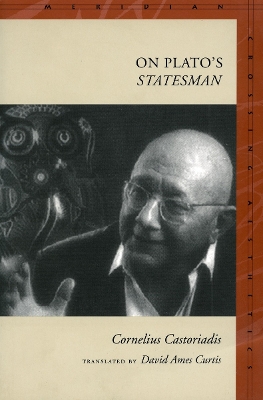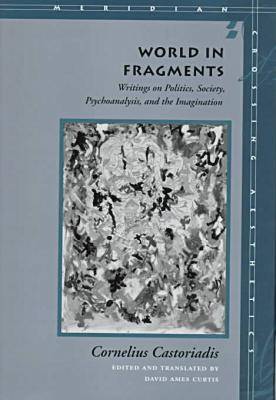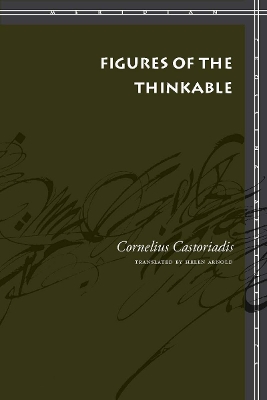Meridian: Crossing Aesthetics
3 total works
This posthumous book represents the first publication of one of the seminars of Cornelius Castoriadis, a renowned and influential figure in twentieth-century thought. A close reading of Plato's Statesman, it is an exemplary instance of Castoriadis's pragmatic, pertinent, and discriminating approach to thinking and reading a great work: "I mean really reading it, by respecting it without respecting it, by going into the recesses and details without having decided in advance that everything it contains is coherent, homogeneous, makes sense, and is true."
Castoriadis brings out what he calls The Statesman's "quirky structure," with its three digressions, its eight incidental points, and its two definitions, neither of which is deemed good. He does not hesitate to differ with the text, to show that what is, in appearance, secondary is really essential, and that the denunciation of the Sophists accommodates itself quite well to the use of sophistical procedures. Castoriadis shows how The Statesman takes us into the heart of what is distinctive in the late Plato: blending, acceptance of the mixed, of the intermediate.
These transcriptions of Cornelius's afford the reader an opportunity to discover his trenchant, convincing, energetic, provocative, and often droll voice. Here is a hitherto unknown Castoriadis, who reflects as he speaks, collects himself, corrects himself, and doesn't hesitate to revisit key points. In short, this is Castoriadis's thinking in action.
The book is in four parts: Koinonia, Polis, Psyche, Logos. The opening section begins with a general introduction to the author’s views on being, time, creation, and the imaginary institution of society and continues with reflections on the role of the individual psyche in racist thinking and acting and on the retreat from autonomy to generalized conformity in postmodernism. The second part is a critique of those who now belittle and distort the meaning of May `68 and other movements of the sixties as well as the French Revolution. The fate of the “project of autonomy” is considered here in the light of the Greek and the modern “political imaginary,” the “pulverization of Marxism-Leninism,” and a recent alleged “return of ethics” (Habermas, Rawls, McIntyre, Solzhenitsyn, Havel).
In part three, Castoriadis shows how psychoanalysis, like politics, can contribute to the project of individual and collective autonomy and challenges Lacan, Foucault, Derrida, and others in his report on “The State of the Subject Today.” This section also presents his most current lines of psychoanalytic research and thought on the “human nonconscious” in the body and on the problem of the psychoanalysis of psychotic subjects, where an alternative coherence on the level of meaning offers a constant challenge to the task of psychoanalytic interpretation.
Castoriadis’s highly original investigations of the unruly place of the imagination in Western philosophy round out the book. He examines how Aristotle’s original aporetic discovery and cover-up of the imagination were repeated by Kant, Freud, Heidegger, and Merleau-Ponty.
In this posthumous collection of writings, Cornelius Castoriadis (1922-1997) pursues his incisive analysis of modern society, the philosophical basis of our ability to change it, and the points of intersection between his many approaches to this theme. His main philosophical postulate, that the human subject and society are not predetermined, asserts the primacy of creation and the possibility of creative, autonomous activity in every domain. This argument is combined with penetrating political and social criticism, opening numerous avenues of critical thought and action.
The book's wide-ranging topics include the core worldview of ancient Athens, where the idea of self-creation and self-limitation made democracy possible; the wealth of poetic resources; a deconstruction of the so-called rationality of capitalism and of the current conception of democracy, along with a discussion of what a radical, revolutionary project means today; the role of what he calls the radical imagination in the creation of both societal institutions and history; the roots of hate; a psychoanalytic view of human development torn between heteronomy and autonomy; the role of education in forming autonomous individuals; and notions of chaos, space, and number.


